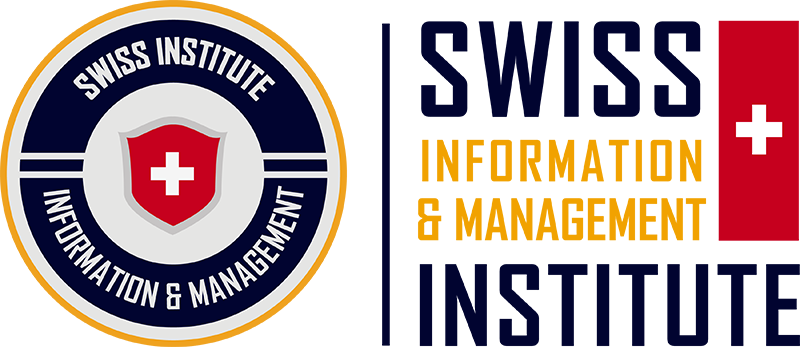What Is A Bachelor of TESOL Degree? Should I Take TESOL, TEFL, Or CELTA courses?

TESOL, commonly known as Teaching English to Speakers of Other Languages, is a teaching degree used widely around the world. With the high demand for learning English, almost all countries now teach English as a second language; all English teachers need to have a degree to prove their expertise. TESOL was born to meet the needs of English language learners; in other words, it helps learners by providing teachers with sufficient professional knowledge and necessary teaching skills to pass on their ability to learners.
In this article, we will provide you an in-depth analysis of TESOL degrees and other related information and provide a non-biased point of view between TESOL, TEFL, and CELTA degrees to draw you an overview picture of which international teaching degree is the most suitable for your own needs.
Before starting, let’s delve right into the basic concept of all degrees!
What is a bachelor of TESOL?
As mentioned earlier, TESOL stands for Teaching English to Speakers of Other Languages, meaning teaching English to those using languages other than English. It sounds a bit generic, isn’t it?
Indeed, this is the degree that all people who want to become an English teacher need to have. The degree is indispensable for those who want to teach English as a foreign language in an international scenario.
If this sounds like you, you can either choose a bachelor of TESOL or a TESOL certificate program. The courses taken depend on your learning needs.
TESOL degree/certificate is proof that learners have sufficient skills and knowledge to teach English, understand all advanced and optimal teaching methods to help their students achieve their learning goals in the most effective way.
What are the differences between TESOL, TEFL, and CELTA?
When looking for an English teaching course, you may come across these three most popular teaching degrees. So what are the differences between this trio? Let’s go through the concept of each:
- TESOL – Teaching English to Speakers of Other Languages
- TEFL – Teaching English as a Foreign Language
- CELTA – Certificate in English Language Teaching to Adults
Although there are slight semantic differences between the three degrees, they are widely used interchangeably at English centers worldwide. In most cases, holding any of the mentioned degrees is enough for you to teach English at any places around the world. They all certify your eligibility for the teaching job.
If you search for English teaching diplomas, we’re sure you’ll often see advertisements for TEFL/TESOL/CELTA courses. Or, when you’re looking for teaching jobs at reputable English language centers, you’ll often see a requirement for those degrees. However, for specialized English language classes for adults, you’ll need the CELTA degree precisely.
A side note is that there is an exception for higher education. For example, if you want to have a bachelor’s or master’s degree in English language teaching, you’ll need to look for Bachelor’s or Master’s degree in TESOL, not TEFL or CELTA.
Why should I take TESOL courses?
If you intend to become a teacher, whether in a traditional classroom (offline) or online, the certificate/degree is compulsory. You’ll find this requirement listed in job postings for English teachers at many language centers. Normally, a 120-hour TESOL certification is a minimum qualification for these types of jobs.
If you want to teach in university or high school, a bachelor’s degree is a must.
What are the requirements for a TESOL degree?
English level! Isn’t it too obvious? The first and only requirement for registration, if you are studying for a TESOL certificate, is your English level. You must be able to learn and finish the course.
In case you are a native speaker, the recommended level for certification usually ranges from CEFR (Common European Framework for Reference) B1 to C2 – this is an international standard used to describe your language proficiency.
Since TESOL is not owned by any organization, unlike IELTS, which is owned by the British Council, IDP, IELTS Australia, and Cambridge Assessment English, TESOL is like any Business Administration course that any university and education institutes can offer to their students.
Each school will have its own requirements for the required English language proficiency, which may vary slightly depending on the academic level of the course. For most professional certification courses, you’ll need to be at CEFR B1 level, at least.
In most cases, the requirement for obtaining a TESOL certificate is your English language proficiency. You don’t need a college degree nor any technical expertise to take the online certification exam.
In addition, if you want to study advanced TESOL programs, like the Bachelor of TESOL, in addition to foreign language proficiency, you need to have a minimum level of education (high school diploma or university degree).
How long does it take to obtain a degree?
It usually takes one to three months to complete an online TESOL course. This depends on the number of hours the course prescribes (they can range from 40 to more than 150 hours) and how much time you can spend on extra hours per week.
Most students will choose to take the 120-hour course. To qualify for most teaching jobs, it will usually take you about six weeks to complete if studying part-time.
In addition, the above TESOL courses in class (offline) will be almost four weeks long as they are full-time training.
How long is a TESOL degree valid for?
TESOL certification/degree does not expire, this is completely different from certificates proving English proficiency such as IELTS, TOEIC, TOEFL. Once you receive the certificate, it will be valid forever.
When they get their degrees, some teachers will continue to study further to be able to participate in training for higher courses, such as teaching English online or teaching children. At this point, teachers can look for a bachelor’s or master’s degree in English language teaching.
Where should I study for TESOL certification?
Suppose you want to study for a TESOL certificate, you can refer to the TESOL gate or if you want to get a TESOL bachelor’s degree, you can refer to the Dual Degree of Bachelor’s of TESOL at the Swiss Institute of Management and Innovation.
The Dual Degree Bachelor of TESOL (Top-up) program delivers relevant information and covers all activities associated with teaching and learning English for people whose first language is not English. The Dual Degree Bachelor of TESOL (Top-up) is a valuable qualification necessary in several countries if you wish to teach English at universities or language centers.
The Dual Degree Bachelor of TESOL (Top-up) is a dual degree program that combines the UK National Qualifications Framework and the Bachelor in Tesol with Honours from Switzerland. The coordination with the UK’s Level National Qualification Framework and SIMI helps the graduated learner participate in the labor market or/and easy learning connected to prestigious and equivalent educational systems.
Upon graduation, learners will contemporaneously receive 2 Bachelor degrees:
- The Bachelor Degree belongs to the UK National Regulated Qualification Framework (RQF): OTHM Level 6 Diploma in Teaching and Learning
- Bachelor of Teaching English to Speakers of Other Languages (Hons) from SIMI Switzerland
Source: The Swiss Institute of Management and Innovation
